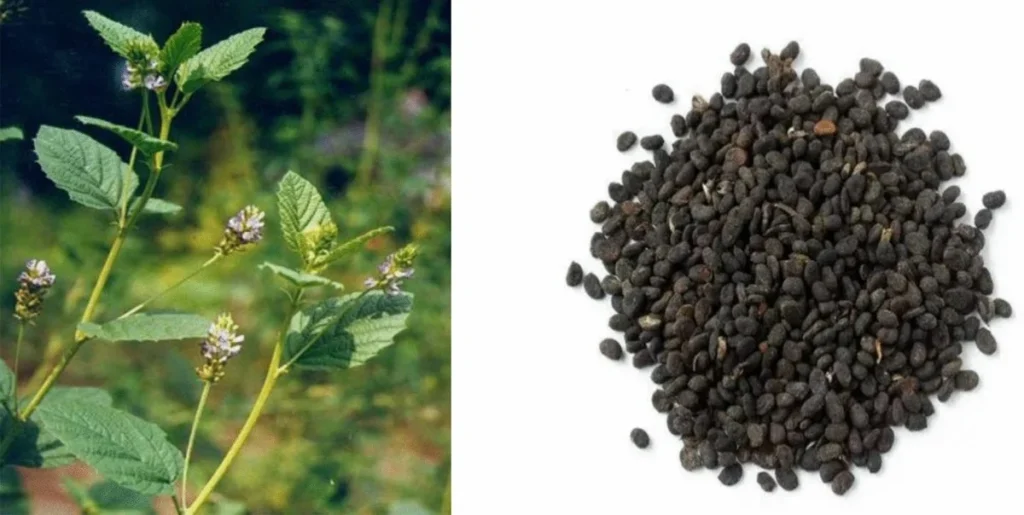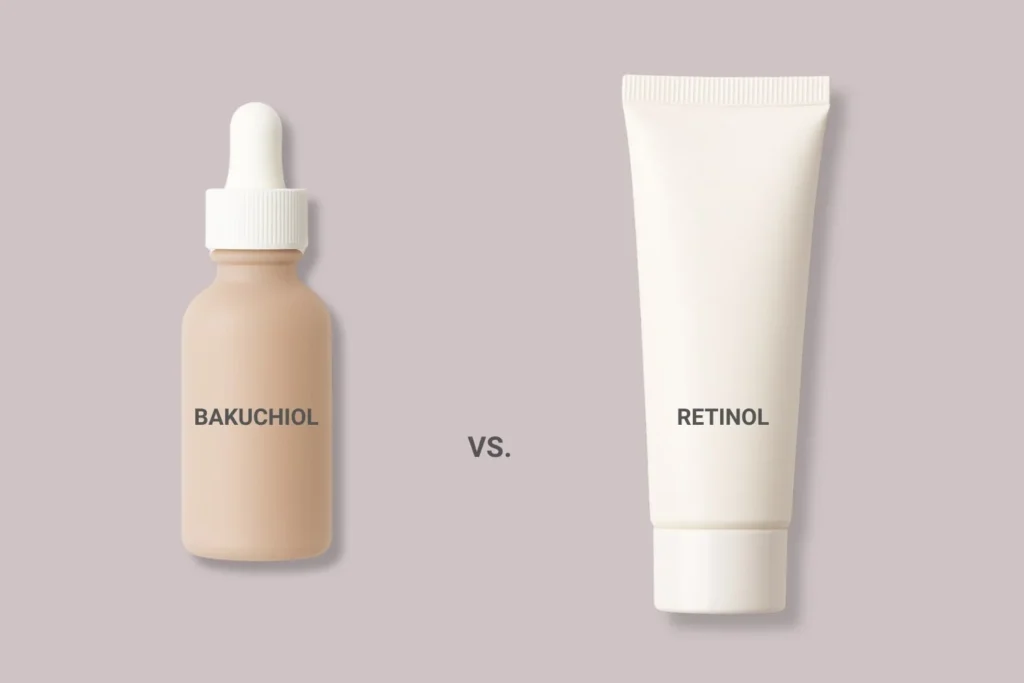For decades, retinol has been the undisputed “gold standard” in anti-aging skincare. Dermatologists praise it, and beauty editors swear by it. But its power comes with a price: for many, that means redness, peeling, and frustrating irritation. What if you could get the wrinkle-smoothing, acne-fighting results of retinol without the harsh side effects?
Enter Psoralea corylifolia extract.
This plant-based ingredient has created a seismic shift in the skincare world, emerging as a gentle yet potent powerhouse. Hailed as a true natural retinol alternative, it promises similar benefits with a much kinder touch. But is it all hype, or is this ancient herb the future of anti-aging? Let’s dive deep into the science and secrets behind Psoralea corylifolia extract.
What Exactly Is Psoralea Corylifolia Extract?
Psoralea corylifolia, also known as the “Babchi” plant, is not a new discovery. It’s a botanical stalwart with deep roots in traditional medicine, particularly in Indian Ayurveda and Traditional Chinese Medicine (TCM). For centuries, its seeds and leaves have been used to treat various skin ailments, from rashes to vitiligo.
But the Psoralea corylifolia extract found in your modern skincare serum isn’t just crushed-up seeds. The magic lies in a specific, powerful compound isolated from the plant.
From Ancient Herb to Skincare Star: The Rise of Bakuchiol
The key to Psoralea corylifolia’s power is a compound called Bakuchiol. In the 1960s, scientists first isolated this active molecule from Babchi seeds. However, it remained an academic curiosity until recently, when researchers discovered its remarkable functional similarity to retinol.
It’s crucial to understand this distinction:
- Psoralea Corylifolia Extract: A broad term for an extract from the Babchi plant.
- Bakuchiol: The specific, highly purified active compound that delivers the retinol-like benefits.
High-quality, effective, and safe skincare products use a purified form of Bakuchiol. This ensures you get all the incredible benefits without the potentially harmful compounds present in the raw plant. So, when you see “Psoralea Corylifolia Extract” on an ingredient list, the star player you’re really looking for is Bakuchiol.
The Science-Backed Benefits of Psoralea Corylifolia Extract for Skin
The excitement around Bakuchiol isn’t just based on tradition; it’s firmly supported by modern science. It works as a “retinoid-analogue,” meaning it interacts with the same skin receptors as retinol to trigger incredible regenerative processes.
A True Anti-Aging Powerhouse: Reducing Wrinkles and Fine Lines
Like retinol, Bakuchiol has been clinically shown to stimulate the production of Type I and Type IV collagen, the essential proteins that keep skin firm and plump. It also boosts Type III collagen, which is crucial for skin structure and elasticity. The result? A significant, visible reduction in the appearance of fine lines and wrinkles and improved skin firmness over time.
The Acne-Fighting Alternative: Calming Blemishes and Inflammation
If you struggle with breakouts, Bakuchiol is a game-changer. It possesses powerful anti-inflammatory and antibacterial properties that help soothe existing blemishes and prevent new ones from forming. Furthermore, it helps regulate sebum production, addressing one of the root causes of acne, all without the dryness and irritation that often accompany traditional acne treatments.
Fading Dark Spots: Improving Pigmentation and Skin Tone
Struggling with post-acne marks or sun spots? Bakuchiol can help. Studies show that it can inhibit the overproduction of melanin, the pigment responsible for dark spots. By doing so, it helps to fade hyperpigmentation, even out skin tone, and restore a radiant, uniform complexion.
A Shield Against Damage: Powerful Antioxidant Properties
Our skin is under constant assault from environmental stressors like UV radiation and pollution, which generate free radicals that accelerate aging. Bakuchiol is a potent antioxidant that neutralizes these damaging free radicals, protecting your skin’s collagen and elastin from degradation and keeping it looking youthful and healthy.
The Ultimate Showdown: Bakuchiol vs. Retinol
The most pressing question for any skincare enthusiast is: how does Bakuchiol really stack up against retinol? While retinol is effective, its drawbacks are significant—irritation, peeling, sun sensitivity, and being off-limits during pregnancy. This is where Bakuchiol truly shines.
A landmark 2019 study published in the British Journal of Dermatology directly compared Bakuchiol and retinol in a 12-week clinical trial. The findings were stunning.
Efficacy: Does It Really Work Like Retinol?
The study concluded that both Bakuchiol and retinol significantly decreased wrinkle surface area and hyperpigmentation. There was no statistical difference in their effectiveness. In short, Bakuchiol delivered the same powerful anti-aging results as the industry’s gold standard.
Side Effects: The Gentle Giant vs. The Powerful Irritant
This is the biggest differentiator. The same study found that the retinol users reported significantly more stinging, scaling, and skin irritation. The Bakuchiol users, on the other hand, experienced minimal to no side effects. It provides the “gain” without the “pain.”
Stability: A Major Win for Bakuchiol
Retinol is notoriously unstable. It degrades quickly when exposed to light and air, which is why it’s always packaged in opaque, air-tight containers and recommended for nighttime use only. Bakuchiol is photostable, meaning it doesn’t break down in sunlight. This makes it safe to use during the day (with sunscreen, of course!), giving you around-the-clock anti-aging benefits.
Who Wins? A Comparison Table
| Feature | Bakuchiol (from Psoralea Corylifolia) | Retinol |
|---|---|---|
| Efficacy | ✔️ Clinically proven to reduce wrinkles & pigmentation | ✔️ Clinically proven to reduce wrinkles & pigmentation |
| Side Effects | Minimal to none; well-tolerated by sensitive skin | Common; stinging, redness, peeling, dryness |
| Sun Sensitivity | No; photostable and safe for daytime use | Yes; increases photosensitivity |
| Source | Plant-based (Vegan) | Often synthetic or animal-derived |
| Use During Pregnancy | Generally considered safe (consult your doctor) | Not recommended |
| Winner | 🏆 Bakuchiol (for its comparable efficacy and superior safety profile) |
Is Psoralea Corylifolia Extract Safe? Unpacking the Side Effects
A quick Google search might bring up alarming claims about the Psoralea corylifolia plant being “toxic.” This is a critical point that needs clarification.
Yes, the raw seeds of the Babchi plant contain compounds called furanocoumarins (like psoralen), which can cause severe photosensitivity and skin reactions when ingested or applied topically. This is precisely why you should never use raw, unprocessed Babchi oil or plant parts on your skin.
The Importance of Purification: Why Modern Bakuchiol is Safe
Reputable cosmetic manufacturers use a highly advanced purification process to extract Bakuchiol. This process meticulously removes all the harmful, phototoxic furanocoumarins, isolating only the beneficial Bakuchiol molecule. The result is a pure, safe, and non-irritating ingredient. Commercially available Bakuchiol in skincare has been tested for safety and does not carry the risks associated with the raw plant.
Potential Minor Side Effects and Who Should Patch Test
For the vast majority of users, pure Bakuchiol is exceptionally gentle. Side effects are rare but could include minor, temporary redness or dryness when first introducing the product. As with any new active ingredient, it’s always wise to perform a patch test on a small area of skin (like behind the ear) before applying it to your entire face, especially if you have extremely sensitive skin or a history of allergies.
How to Incorporate Psoralea Corylifolia Extract (Bakuchiol) Into Your Skincare Routine
Integrating this gentle giant into your routine is simple and flexible.
Where Does It Fit?
Bakuchiol is typically found in serums or oils. Apply it to clean, toned skin before your heavier creams or moisturizers. This allows the active ingredient to penetrate the skin most effectively. A good rule of thumb is to apply products from thinnest to thickest consistency.
Can You Use It with Other Actives?
Absolutely! This is another area where Bakuchiol outshines retinol. It plays remarkably well with other ingredients.
- Vitamin C: Yes, you can use them together for a powerful antioxidant and brightening duo.
- Hyaluronic Acid & Niacinamide: Yes, these are excellent for layering to boost hydration and support the skin barrier.
- AHAs/BHAs (Glycolic/Salicylic Acid): Yes, unlike retinol which can be too harsh when combined with acids, Bakuchiol is generally safe to layer. Just listen to your skin and don’t overdo it.
- Retinol: Yes, some people use them together (e.g., Bakuchiol in the AM, Retinol in the PM) to enhance results and potentially soothe some of the retinol’s irritation.
How Often and When?
Because it’s stable and gentle, you can use Bakuchiol twice daily, both in the morning and at night, for maximum benefits. If you have very sensitive skin, start with once a day to see how your skin adapts.
When to Expect Results: A Timeline for Your Skin
Skincare is a marathon, not a sprint. While some calming and hydrating benefits may be noticeable quickly, the significant, collagen-driven results take time. Based on clinical studies, you can expect to see a visible improvement in fine lines, pigmentation, and skin firmness within 8 to 12 weeks of consistent use.
Conclusion: Is Psoralea Corylifolia Extract Worth the Hype?
After reviewing the science, the history, and the practical benefits, the answer is a resounding yes. Psoralea corylifolia extract, in its purified Bakuchiol form, is not just a passing trend. It’s a scientifically-validated, revolutionary ingredient that finally offers a solution to one of skincare’s oldest dilemmas: how to get powerful anti-aging results without compromising skin health and comfort.
It stands as a testament to the power of combining ancient botanical wisdom with modern scientific innovation.
This ingredient is especially for you if:
- You have sensitive skin that cannot tolerate retinol.
- You are pregnant or breastfeeding and need a safe anti-aging alternative.
- You are new to anti-aging actives and want to start with something gentle.
- You follow a “clean” or “natural” beauty philosophy.
- You simply want effective, evidence-based skincare without the irritation.
Psoralea corylifolia extract is a true skincare hero, inviting everyone to the anti-aging party—no invitation (or irritation) required.
Frequently Asked Questions (FAQ)
Q1: Is Psoralea Corylifolia Extract the same as Bakuchiol?
Not exactly. Psoralea Corylifolia is the plant. Bakuchiol is the pure, active compound extracted from the plant that provides the retinol-like benefits. Reputable skincare uses purified Bakuchiol.
Q2: Is Bakuchiol really as effective as Retinol?
Yes. Major clinical studies, including one in the British Journal of Dermatology, have shown that Bakuchiol is just as effective as retinol at reducing wrinkles and hyperpigmentation, but with far fewer side effects.
Q3: Is Psoralea Corylifolia Extract safe? What are the side effects?
The purified Bakuchiol used in skincare is very safe. The purification process removes potentially toxic compounds found in the raw plant. Side effects are rare and mild, but it’s always smart to patch-test a new product.
Q4: Can I use Bakuchiol during pregnancy?
Bakuchiol is widely considered to be a safe alternative to retinol during pregnancy and breastfeeding. However, you should always consult with your doctor before introducing any new products during this time.
Q5: How long does it take to see results from Bakuchiol?
Consistent use is key. You can typically expect to see visible improvements in fine lines, skin tone, and firmness within 8-12 weeks.
Q6: Can I use Bakuchiol with Vitamin C or AHA/BHA?
Yes, Bakuchiol is very stable and layers well with other actives like Vitamin C and exfoliating acids. Unlike retinol, the risk of irritation when combining ingredients is much lower.
Q7: Will Psoralea Corylifolia Extract make my skin sensitive to the sun?
No. Unlike retinol, Bakuchiol is photostable and does not increase your skin’s sensitivity to the sun. However, you should still wear a broad-spectrum sunscreen every day as the best anti-aging practice.


